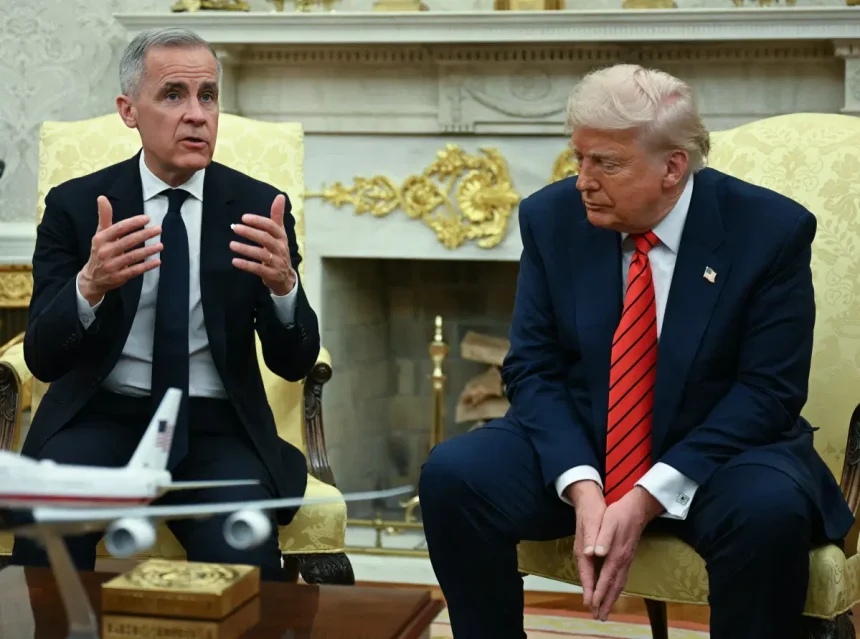Prime Minister Mark Carney expressed his government’s dissatisfaction Friday after President Donald Trump increased United States tariffs on Canadian goods from 25 per cent to 35 per cent, a move linked to Ottawa’s planned recognition of a Palestinian state at the upcoming United Nations General Assembly.
“The Canadian government is disappointed by this action,” Carney said in a statement, responding to Trump’s executive order. The U.S. leader had previously warned of trade repercussions following Canada’s announcement regarding Palestine.
While a broad range of products covered under the 2020 United States-Mexico-Canada Agreement remain exempt from the higher tariff, Trump’s order justified the increase by citing Canada’s alleged failure to “cooperate in curbing the ongoing flood of fentanyl and other illicit drugs” and its “retaliation” against previous U.S. trade measures.
Carney pushed back, detailing Canada’s efforts to combat drug trafficking and enhance border security. “Canada accounts for only one percent of U.S. fentanyl imports and has been working intensively to further reduce these volumes,” he said.
Despite the tariff hike, the prime minister reaffirmed Ottawa’s commitment to the trade pact. “The U.S. application of CUSMA means that the U.S. average tariff rate on Canadian goods remains one of its lowest for all of its trading partners,” Carney noted.
However, he acknowledged that certain sectors remain vulnerable. “Other sectors of our economy — including lumber, steel, aluminum, and automobiles — are, however, heavily impacted by U.S. duties and tariffs.”
The escalation adds strain to bilateral relations, particularly as Canada seeks to balance its trade ties with the U.S., its largest partner, against its foreign policy positions. The tariff increase could disproportionately affect industries already facing trade restrictions, such as softwood lumber and automotive manufacturing.







